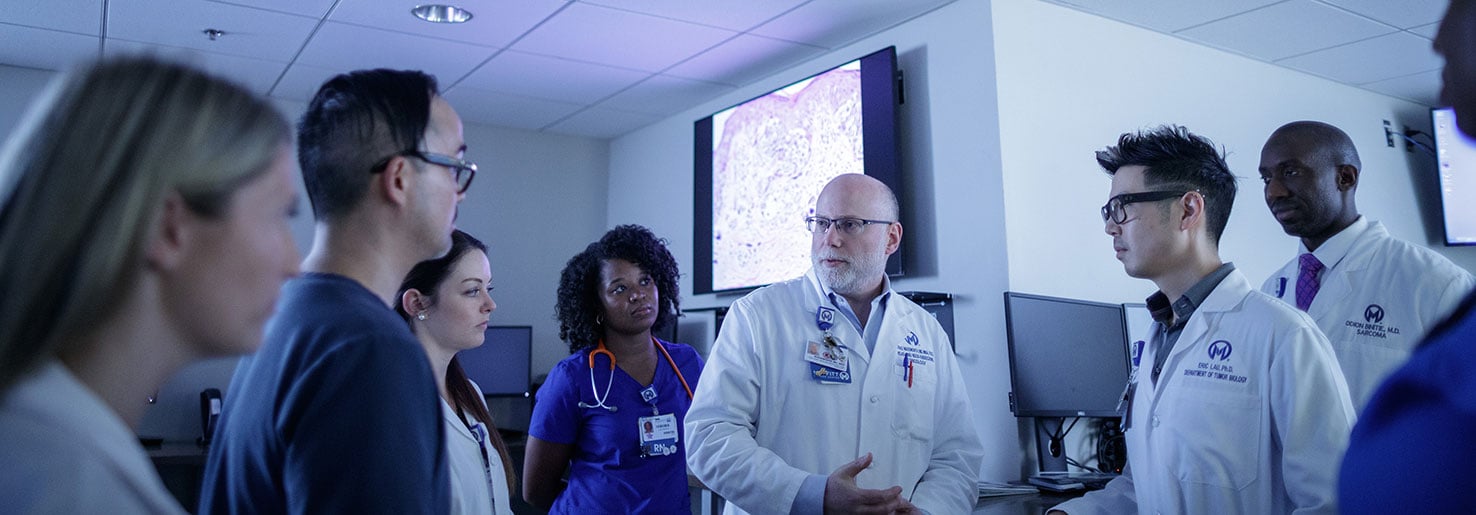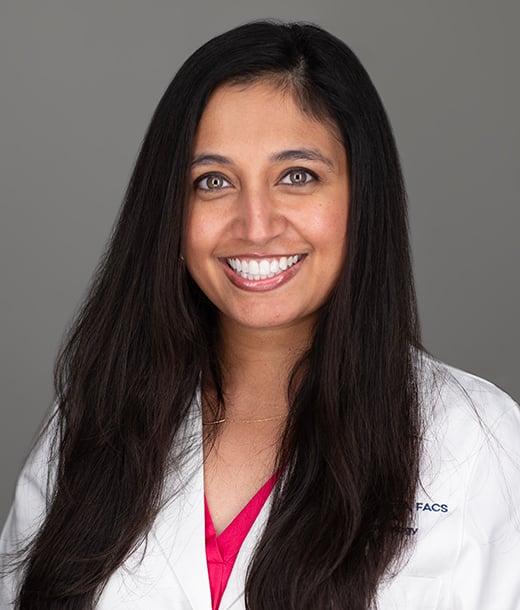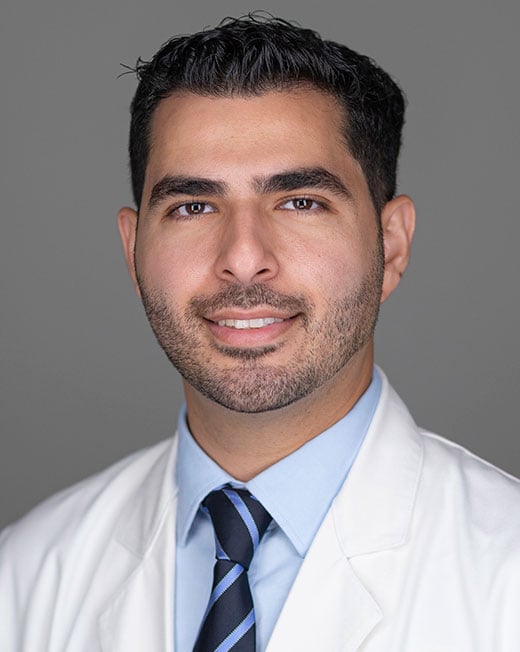
Meet the Experts: Q&A with Drs. Monsour and Danan
Moffitt Cancer Center's Head and Neck Cancer-Endocrine Program is highly specialized in the treatment of cancer malignancies of the head and neck, thyroid, pituitary, adrenal gland and other endocrine cancers. Head and Neck surgeon, Dr. Deepa Danan and endocrinologist, Dr. Elio Monsour, who recently joined Moffitt’s Head and Neck Cancer-Endocrine Program, share their clinical interests and what they hope to bring to the program.
 Dr. Deepa Danan, MD, MBA, MHA, FACS
Dr. Deepa Danan, MD, MBA, MHA, FACS
What led you to become a head and neck oncology surgeon?
During medical school, I knew that I wanted to work in an oncologic field in some capacity very early on. I felt the most connected to oncology patients and oncology research. I also loved the complex anatomy of the head and neck and after my first rotation in head and neck surgery, it became clear that it was a perfect fit.
What are your clinical/research interests? What do you hope to bring to Moffitt to help impact patient care?
My research interests include outcome optimization in head and neck surgery, advances in thyroid and parathyroid surgery, as well as the impact of public health issues on head and neck cancer care delivery. I hope to help move forward the field of head and neck surgery by identifying modifiable factors that can improve patient outcomes.
How do you build rapport with patients in your care?
I try to understand the patient’s perspective to know what motivates them, inspires them, or even scares them. I like to meet patients where they are and help to usher them into an understanding of the disease process and management so that they can feel in control of their care.
 Dr. Elio Monsour, MD
Dr. Elio Monsour, MD
What drove you to become an endocrinologist?
My passion for basic and clinical sciences, my pleasure in helping others, and my desire to make a lasting difference ultimately led me down the path to becoming an endocrinologist. Hormones influence nearly every organ, cell, and bodily function. Endocrinology is a dynamic field of medicine that is both very stimulating and rewarding.
What are your research interests, and how do you incorporate this into your patient care approach?
I have a research interest in augmented intelligence and the utilization of machine learning to improve the characterization of thyroid nodules. Moreover, I also aim to actively engage in adrenal tumor research, specifically focusing on adrenocortical carcinoma and other functional adrenal tumors. I’m eager to incorporate my research interests to offer personalized care and strive to improve clinical outcomes.
How do you build trust with patients who may be anxious or hesitant about their treatment plans?
I utilize shared decision-making so that the evidence-based care provided is patient-centered. This model encourages both the patient and me to work as a team to develop a plan that reflects what matters most to them.
What do you envision for the future of Endocrine Oncology at Moffitt?
It is an exhilarating time since Moffitt is expanding and at the forefront of cancer research. As research advances, we will better understand endocrine molecular biology and genetics. Ultimately, these discoveries will help us further transform precision medicine.
To refer a patient to Moffitt, complete our online form or contact a physician liaison for assistance or support. As part of our efforts to shorten referral times as much as possible, online referrals are typically responded to within 24 - 48 hours
